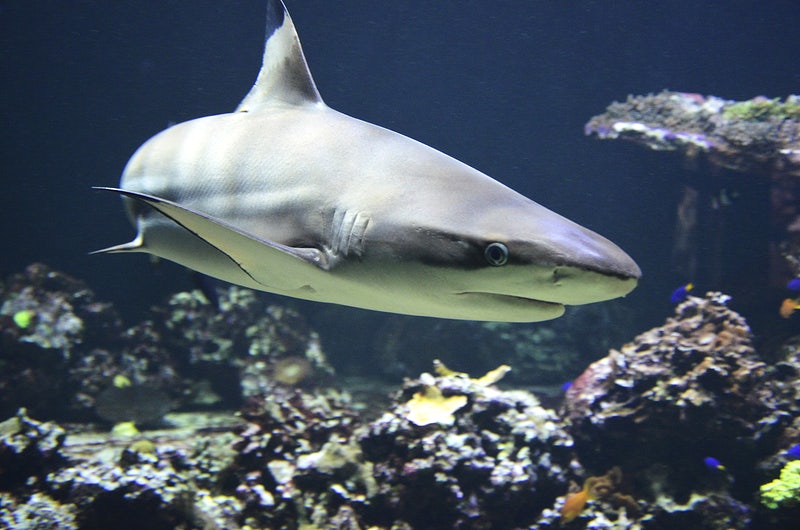A top predator in the ocean, great white sharks, has an important role to play in keeping the ecosystem in balance. While they are considered the most aggressive, there are people who like to keep the shark in custody. Having over 500 species of sharks, each one has distinct characteristics, habitat, food preferences, and other requirements.
While there are shark species that you can own or keep as pets, the great white shark is not on the list, and if you constrain them, there is a high probability that they won’t be able to make it for long. Why do great white sharks die in captivity is a matter of concern and needs to be looked for.
Keeping them in captivity isn’t going to be the same as with other animals, considering the shark’s size, let alone the other factors. If you want to see what it takes to keep a shark in an aquarium, pay a visit to Georgia Aquarium, and you will have an idea.
Let’s learn what makes sharks unfit for captivity.
Why can’t great white sharks stay in captivity?
Experiencing sharks roaming around is an exciting event, but those who can’t get deep in the water head to the aquariums. Though you will see a variety of sharks and other marine creatures in aquariums, you will hardly find great white sharks. As a result of captivity, the great white shark dies. But why is it so when you can have the largest shark, the whale shark, in an aquarium?
The size of the sharks seems not to be a major concern here. Anyways, we are here to find out.
Great white shark habitat
Before we get to the reasons, it’s vital that you should know what environment great white sharks are habitually living in.
White sharks are present in nearly all coastal and offshore waters; however, their preferred habitat is in water that is amid 12 and 24 °C. Strong muscles, serrated teeth, sharp eyesight, and an acute sense of smell make them exceptional hunters. As a great white can grow up to 20 feet in length and weight between1500 and 4000 pounds, it has a body perfectly adapted to a predation-oriented lifestyle.
The great white is the species that is responsible for the most number of attacks on humans; however, many of them were the result of human provocation.
The fear of sharks has led to shark culling, which results in a decline in the shark population, so much so that the IUCN has declared the great white a vulnerable species. When people head to the aquarium all for the good reason to learn about the shark’s behavior, unfortunately, they don’t find the great white shark.
Belonging to a carnivorous category, their diet mainly consists of fishes, sea turtles, cetaceans, pinnipeds, and other sharks. Do check out what a shark habitat is in general and what their diet is.
With that said, let’s now see why great white sharks will die in detention.
What causes great white sharks to die in captivity?
Reading about the great white shark’s habitat, it is evident that keeping them in a confined environment will have its own challenges. A shark that is used to living in the open sea, and when you put them in a boundary, the environment will definitely be going to have a bad impact, and in the case of great white sharks, it can cost their lives.
Taking this into account, there are multiple reasons that result in sharks’ death in captivity. That includes the following.
- Great white sharks have a habit of living in the open waters, and they swim freely in all directions. But, when you put a boundary, they won’t be able to swim greater distances. Having enough space to swim is necessary for sharks.
- While many other shark species housed in aquariums are accustomed to hanging around one area for an extended period of time, great whites are not. They are frequent travelers and keep on changing the locations.
- A shark’s sides and nose are constantly scraped in tanks and eventually result in injury or stress, killing them in no time.
- Great white sharks are known for their predatory behavior, and thus they prey on other creatures kept with them in the same tank. A separate tank for the white shark only isn’t at all feasible, taking into note other options too.
- A great white shark’s natural hunting instincts require the thrill of the chase for them to survive. They don’t like human feeding, nor do they prefer to eat dead fishes.
As a result of their size and aggressive nature, great white sharks are particularly difficult to handle, and no one likes to get into this. It is better not to keep them in captivity and let them have their time in the open water. Check out which ocean has the most sharks, and you might get a chance to see a great white shark at some time.
Conclusion
One of the most intriguing things about the world of animals is the fact that some animals are incredibly difficult to keep in captivity. This is something that is undoubtedly true for great white sharks. It is factual that there are various reasons for this, and a few are outlined in this article. Whether it’s due to their size, diet, or some other reason, great white sharks have a remarkably high failure rate when it comes to keeping them in captivity.







